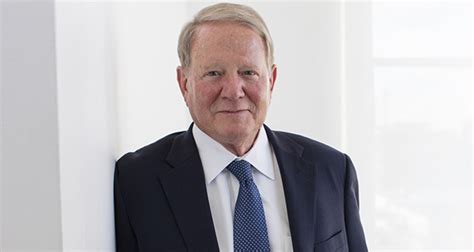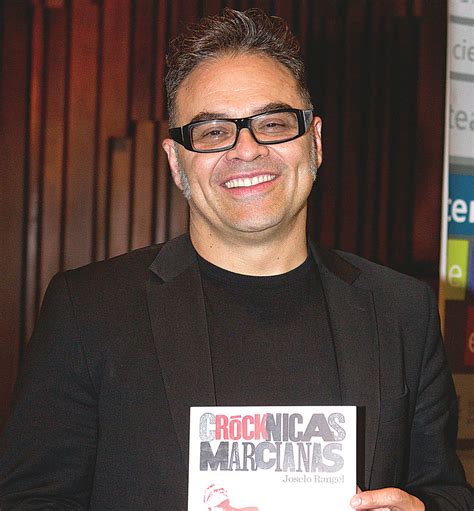A Quote by Karen Armstrong
Yet while nature is in constant flux, we always go against the grain and try to freeze our ideas and experiences and make them absolute. It is egotism that makes us identify with one opinion rather than another, become quarrelsome and unkind, say *this* could not mean *that*, and think we have a duty to change others to suit ourselves.
Related Quotes
Rather than put ourselves down continually, we must work hard to concentrate on our positives, focusing on that which makes us unique and likable. We all have things that we would change if we could. Even people who we think have it all, don't. Nobody has it all because no one is perfect. We all realize this and yet continue to criticize and insult ourselves. Now is the time to stop this nonsense! Change what you can change and accept the rest as a necessary part of your own unique humanity. Make peace with who you are.
Don't be afraid to go against the current, when they want to steal our hope, when they propose rotten values to us, values like food that has gone bad-and when food has gone bad it makes us sick, these values make us sick. We have to go against the current! And you, young people, be the first: Go against the grain and be proud of going against the grain. Go on, be brave and go against the current! And be proud of doing it!
There is no true and constant gentleness without humility. While we are so fond of ourselves, we are easily offended with others. Let us be persuaded that nothing is due to us, and then nothing will disturb us. Let us often think of our own infirmities, and we will become indulgent towards those of others.
Tolstoy said, 'The antagonism between life and conscience may be removed either by a change of life or by a change of conscience.' Many of us have elected to adjust our consciences rather than our lives. Our powers of rationalization are unlimited. They allow us to live in luxury and indifference while others, whom we could help if we chose to, starve and go to hell.
Kant does not think there is anything wrong with being beneficent from sympathy. He thinks we have a duty to cultivate sympathetic feelings by participating in the situations of others and acquiring an understanding of them. He thinks we also have a duty to make ourselves into the kind of person for whom the recognition that something is our duty would be a sufficient incentive to do it (if no other incentives were available to us). That's what he means by "the duty to act from the motive of duty".
As an educator, I try to get people to be fundamentally curious and to question ideas that they might have or that are shared by others. In that state of mind, they have earned a kind of inoculation against the fuzzy thinking of these weird ideas floating around out there. So rather than correct the weird ideas, I would rather them to know how to think in the first place. Then they can correct the weird idea themselves.
The misfortune of others is our misfortune. Our happiness is the happiness of others. To see ourselves in others and feel an inner oneness and sense of unity with them represents a fundamental revolution in the way we view and live our lives. Therefore, discriminating against another person is the same as discriminating against oneself. When we hurt another, we are hurting ourselves. And when we respect others, we respect and elevate our own lives as well.
We don't think of ourselves in Cafe Tacvba as representatives. When we go and make new material, we feel that our creations are more authentic if we think of ourselves. We don't say, "Let's be the representatives and show the moment that our society is in." But when it comes to performing and we visit other countries, like New York, many people approach us, people who are outside of their own country, and we become a referent. Our shows become this sort of ritual, and our performances become that moment of identity.
We are not saints yet, but we, too, should beware. Uprightness and virtue do have their rewards, in self-respect and in respect from others, and it is easy to find ourselves aiming for the result rather than the cause. Let us aim for joy, rather than respectability. Let us make fools of ourselves from time to time, and thus see ourselves, for a moment, as the all-wise God sees us.
All of us are different. That's what makes us interesting and special. I don't want to be anything like another person. I want to be totally myself and go against the grain, forge my own path. I've learned that being different is what makes you stand out. It makes everything so much more intriguing.
We see ourselves in other people’s eyes. It’s the nature of the human race; we are a species of reflection, hungry for it in every facet of our existence. Maybe that’s why vampires seem so monstrous to us—they cast no reflection. Parents, if they’re good ones, reflect the wonder of our existence and the success we can become. Friends, well chosen, show us pretty pictures of ourselves, and encourage us to grow into them. The Beast shows us the very worst in ourselves and makes us know it’s true .
Prayer is not a way to get what we want to happen, like the remote control that comes with the television set. I think that prayer may be less about asking for the things we are attached to than it is about relinquishing our attachments in some way. It can take us beyond fear, which is an attachment, and beyond hope, which is another form of attachment. It can help us remember the nature of the world and the nature of life, not on an intellectual level but in a deep and experiential way. When we pray, we don't change the world, we change ourselves. We change our consciousness.






































